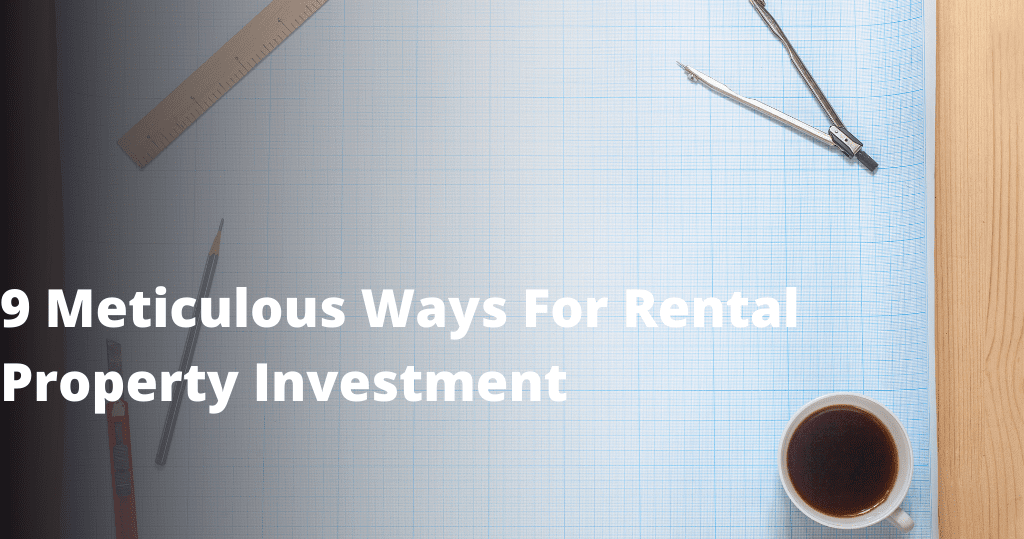New real estate investors can get started with rental property investment. It is a lucrative way to produce value from appreciation. You will get cash flow. Investors may get tax deductions and incentives from real estate.
With this investment, you can earn the right amount of money. Here are some pieces of advice for you. See them before investing in real estate.
Contents
rental property investment: Do Your Research

In the first step, start your search for property. With your research, you can avoid pressures from agents. Moreover, the investment may need some investigation skills. It will help you to shortlist different options. You can evaluate amenities, size, location, and type.
After your research, you can call a real estate agent for help. Location options may be limited. Feel free to manage a property or hire a professional. Feel free to hire a property management firm. It will decrease the chances of proximity issues.
Decrease Your Financial Obligations

Sometimes, debt is an integral part of the investment portfolio for savvy investors. An average person must avoid this situation. Before property investment, try to pay your debt. These may be in different forms, such an unpaid medical expenses, student loans, and other financial obligations.
Purchasing a rental property can be stressful with debts. In numerous cases, you can handle debt and rental property. You need sufficient profit from real estate to manage expenses and debts.
Money for Down Payment

Investment properties need a large down payment as compared to own-occupied properties. These properties may have stringent requirements for approval. There is no benefit of putting down payment for your property where you are living.
Mortgage insurance may help you in down payment. Down payment can be 20% or even more. Bank financing may be an easy option to obtain down payment. Personal loans may prove helpful.
Pick the Best Location

Location is an important consideration to invest in rental property. With attractive location, it is easy to increase profit. You can choose a locale or city where population growth is consistent. A renewal plan is essential to understand possible investment opportunities.
Consider Potential Perks

For investment in rental property, choose a location with low property taxes. You have to evaluate amenities, school districts, movie theaters, and restaurants in your selected area.
Try to invest in a neighborhood with a limited crime rate and the consistently growing job market. It will help you to get lots of potential renters.
Use Financing to Buy a New Property

You can compare between cash and financing options. This comparison is useful to buy a rental property. It may depend on different investment goals. By paying cash, you can generate positive cash flow. Feel free to purchase a rental property costing almost $100,000.
With taxes, rental income, income tax, and depreciation, the cash buyer may earn $9,500 annually. Moreover, financing may increase your return. For 20% down payment, compounding may be at 4% on loan.
It is essential to consider the additional interest and operating expenses. Your earnings may increase by almost $5,580 annually. Cash flow may be lower for investors with a 27.9% annual return.
Avoid High-Interest Rates

The expense of borrowing money may be cheap. These loans may come with high-interest rates and mortgage interest rates. To finance your purchases, you will require a small mortgage payment. It may not impact your monthly profit.
Calculate Margins

Wall Street companies may think about investing in distressed properties for a 5% – 7% return. They should make payments to staff members. People can set a particular goal of 10%. Remember, the estimated maintenance cost is 1% of the annual value of the property. Some other expenses include:
- Possible association fees of homeowners
- Insurance of homeowners
- Property taxes
- Monthly expenses include landscaping and pest control.
Landlord Insurance

It is essential to protect your investment. Moreover, you can purchase landlord insurance. This insurance can cover lost rental revenue, liability protection, and property damage.
You have to factor in unforeseen costs. It may be upkeep and maintenance costs. There will be potential for emergency expenses. These are roof damage and burst pipes. Landlord insurance will help you to manage money for emergency repairs.



